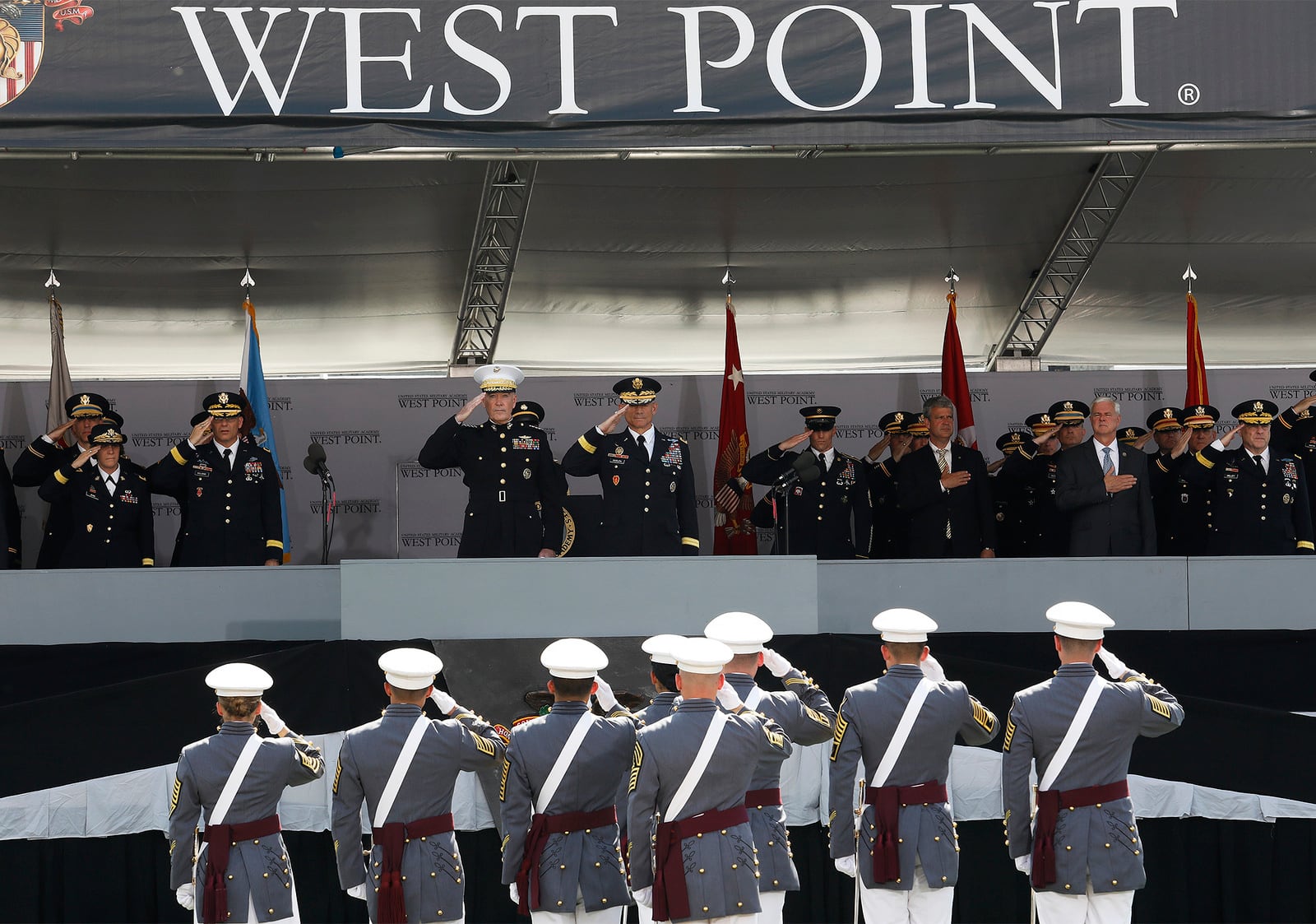Reports of unwanted sexual contact at the military service academies jumped over 30 percent in the past year, according to a Defense Department report released Thursday.
The numbers, totaling both restricted and unrestricted sexual assault reports filed by midshipmen and cadets at the Air Force Academy, Naval Academy and West Point, are up to 122 in 2019, from 92 in the previous two years.
“Sexual assault prevalence at the academies is comparable to rates observed in civilian colleges,” according to the report. “However, the DoD holds itself, and the academies, to a higher standard of behavior.”
The report also found that the number of cadets and mids experiencing sexual harassment “remains high at the academies.”
In addition to those 122 reports, another 19 involved students who had reported an assault that occurred before they began their assignments, and another eight from non-student service members and civilians assigned to the academies.
RELATED

Reviews of sexual assault at the military academies are done with two different protocols, executed on opposite years. On even years, an anonymous survey goes out, asking cadets and mids about their feedback on the Sexual Assault Prevention and Response (SAPR) programs at their schools and their personal experiences with assault. On odd years, teams go out to the academies to do focus groups.
The survey creates a prevalence number that can contrast with documented reports, often showing that more people are experiencing unwanted sexual contact than are reporting it. Because 2019 was an odd year, the latest numbers show a spike in reports at service academies, but there are no fresh prevalence numbers.
Nate Galbreath, the acting director of the Pentagon’s Sexual Assault Response and Prevention office, declined to estimate whether prevalence had also spiked in 2019.
“This should not be interpreted as an increase in crime rate, as the next prevalence survey won’t be conducted until the next academic year,” Elizabeth Van Winkle, executive director of the Office of Force Resiliency, said in a release Thursday. “The increase in reporting cannot be interpreted until next year’s prevalence survey, which estimates rates of unwanted sexual contact.”
The most recent statistics, covering 2018, show that prevalence had been rising since 2014. Prevalence increased from 8.2 percent in 2014 to 12.2 percent 2016 to 15.8 percent in 2018 among women. In men, the number rose from 1.1 percent to 1.7 percent to 2.4 percent.
According to 2018 data, about 12 percent of assaults at the academies are reported, versus about 30 percent in the active force. That is up from 6 percent reporting at academies in 2008.
“The Department recognizes the challenge of combating sexual assault in the military service academies and the high cost of not succeeding,” Van Winkle said in the statement.
Peer leader problems
The 2019 focus groups came back with a common concern, that the first-line peer leaders at the academies are not equipped to do or otherwise not fulfilling their duties to both set an example and offer guidance for their more junior counterparts.
“When we asked them about leadership across the academies, it was the leaders that were getting the lowest ratings.” Ashlea Klahr, the director of health and resilience research for the Pentagon’s Office of People Analytics, told reporters. “Some are sort of saying one thing in their official capacity as a leader, but in their actions, demonstrating that they actually don’t take these issues seriously ― that there’s sort of a mismatch there. And then some of them are just not even pretending to take it seriously."
Those peer leaders, though they have an active role in mentoring younger mids and cadets, are not specifically trained in sexual assault prevention and response, officials said.
RELATED

To that end, Klahr said, the SAPR office is working on an entirely new climate survey for the 2022 cycle, which should be done in that fall.
The questions in that assessment will be targeted “with the intent to provide cadet and midshipmen leaders the opportunity for greater responsibility and accountability for improving academy climate,” according to the report.
“Everybody I think has heard or been a part of a conversation … where there’s something that … other people would find sexually charged and offensive if they were to have heard it," a West Point senior told one of the focus groups. "And I think that would be … proof that sometimes we don’t necessarily place [responsibility upon] ourselves as much.”
Meghann Myers is the Pentagon bureau chief at Military Times. She covers operations, policy, personnel, leadership and other issues affecting service members.





